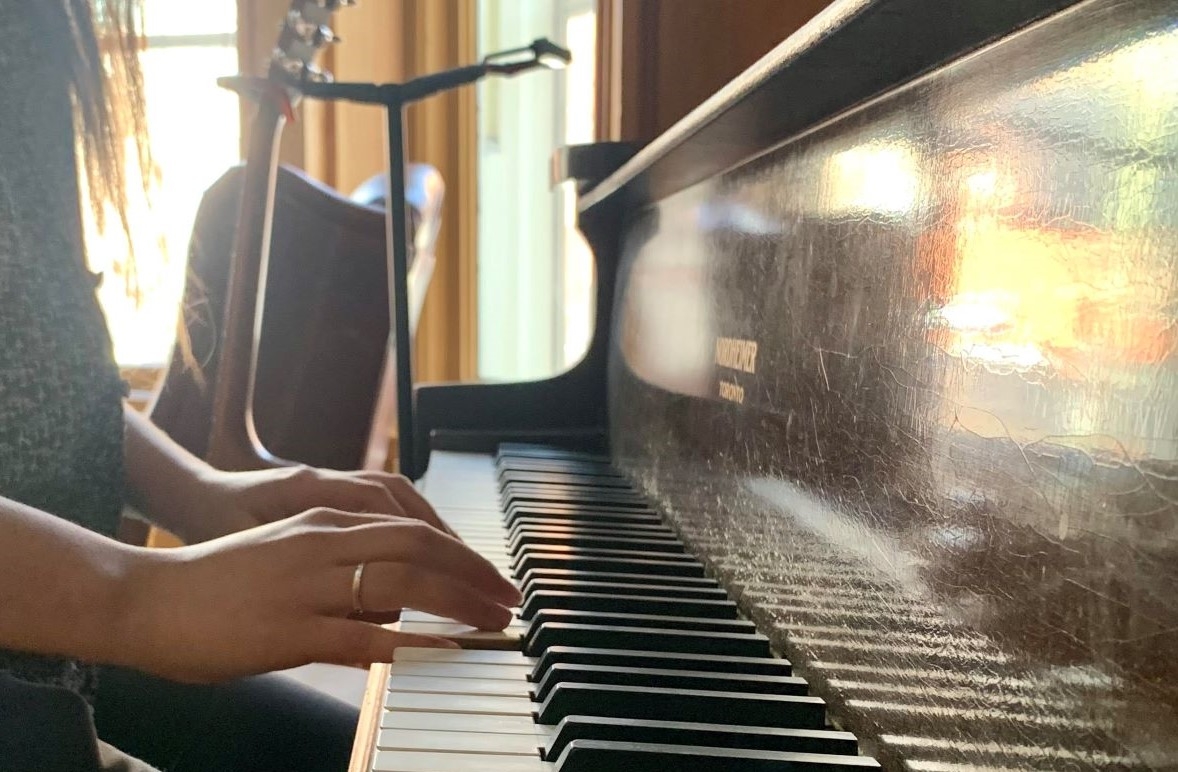
7 ways to hone your musical skills
Becoming a skilled musician takes time and patience. Whether you want to play an instrument as a hobby or have big dreams to be the lead singer in a band playing all the best gigs in Canada’s capital city, there are several things that will help to catapult you further towards your goals. We’ll consider some of the things you can start doing to help hone your musical skills and talent.
1. Spend Time Working on It
One of the most important things you can do to become more skilled in any aspect of music is practice. Without practicing and putting in the time needed, your efforts in many other areas of music will be undermined. It’s important to set aside time on several days each week to practice your skills and technique, build your repertoire, and learn new music. It’s recommended to practice 5-6 days per week, but it depends on your individual goals and what you want to achieve.
Find a healthy balance that works for you – with sufficient time to practice without burning out and overworking yourself. If you’re working a job at the same time too, it’s essential to find a balance that allows you to juggle your job and your musical work in a sustainable way.
Many musicians find it effective to practice for shorter periods of time, but regularly, rather than trying to cram a weekend of practice into your schedule after working a busy week at your job. Look at your morning and evening schedule to see where you could fit in a practice session or consider using your lunch hour to practice if your job allows.
2. Invest in Lessons
While there is a lot you can learn on your own or with friends and colleagues, there is a lot of value in investing in a music teacher or coach who can help to take you to the next level. This comes at a financial cost, but it can pay off in the long run, both in terms of skills and knowledge and in opportunities and networking.
Music teachers will often be connected to many other musicians, including fellow teachers and other people who come to them for lessons. They may even be able to give you discounts to local music studios or musical instrument shops. Discuss with your teacher what you want to achieve and create a plan to help you achieve it.
3. Speak to Other Musicians
Becoming a great musician is about more than just practicing techniques and skills. Networking is a crucial part of honing your musical talents, as it can open doors to new opportunities and enable you to learn more from others.
Ask advice from those who have been involved in music longer than you have and take inspiration from their work too. Spend time going to gigs and other events where you are likely to meet other people working in music or interested in the same music as you. Find out whether there are any local groups or online forums which might be helpful in your musical journey.
4. Listen to More Music
As well as playing and making more music yourself, you will learn and develop further as you listen to more music too. This is something which can be easier to fit into your lifestyle throughout the week and can also be quite relaxing if you want some down time. For example, you could listen to music while you cook dinner, relax in the bath, or drink your morning coffee.
Explore different genres and styles so that you can understand more about the world of music. If there is a specific genre you are interested in, focus on this and work on becoming an expert in this field. As well as listening to music, consider listening to podcasts about music and interviews with musicians.
5. Create the Right Space for Yourself
To practice and develop effectively as a musician, it’s very important that you’re able to find the right space to do it. Music practice rooms and studios are popular among keen musicians who are looking to develop and hone their skills. You can hire music practice rooms and studios such as those offered by PIRATE. This enables you to work from a tailored space whenever you need. It also offers you opportunities to meet, network, and collaborate with other musicians.
If you’re not in a position to hire a space yet, set up a home studio with good lighting and space for all the equipment or instruments you need. The more you enjoy spending time in the space, the easier it will be to continue practicing and staying focused on your musical goals.
6. Get the Right Gear
No matter what type of music you want to create, there are certain items of equipment you are likely to need. To hone your musical skills, you’ll need to ensure you have the right equipment and that it is the right size and shape for you. For example, if you’re learning the guitar and you’re left-handed, there are guitars you can buy specifically for left-handed people. A high-quality piano stool can help you to better perform as a pianist, while recording equipment is necessary if you want to produce music to share with others online.
Ask for advice in music stores near you or connect with likeminded musicians and ask about the items they would recommend for someone in your position. Don’t make any large purchases without reading reviews first and hearing from other people about their experiences.
7. Have Patience
Building and honing any skill takes time, and it’s no different when it comes to music. If you’re new to the musical world, it could take several years before you feel confident in your abilities and skills.
Find ways to enjoy the journey and get the most from your experience. You are likely to meet many people along the way and learn valuable new skills. Persevering and taking the time to learn and develop can be one of the most challenges parts of being a musician.
It’s impossible to hone your musical skills without investing regular time and having patience with yourself. Explore some of these different ways that could help you to improve and develop your musical skills.










